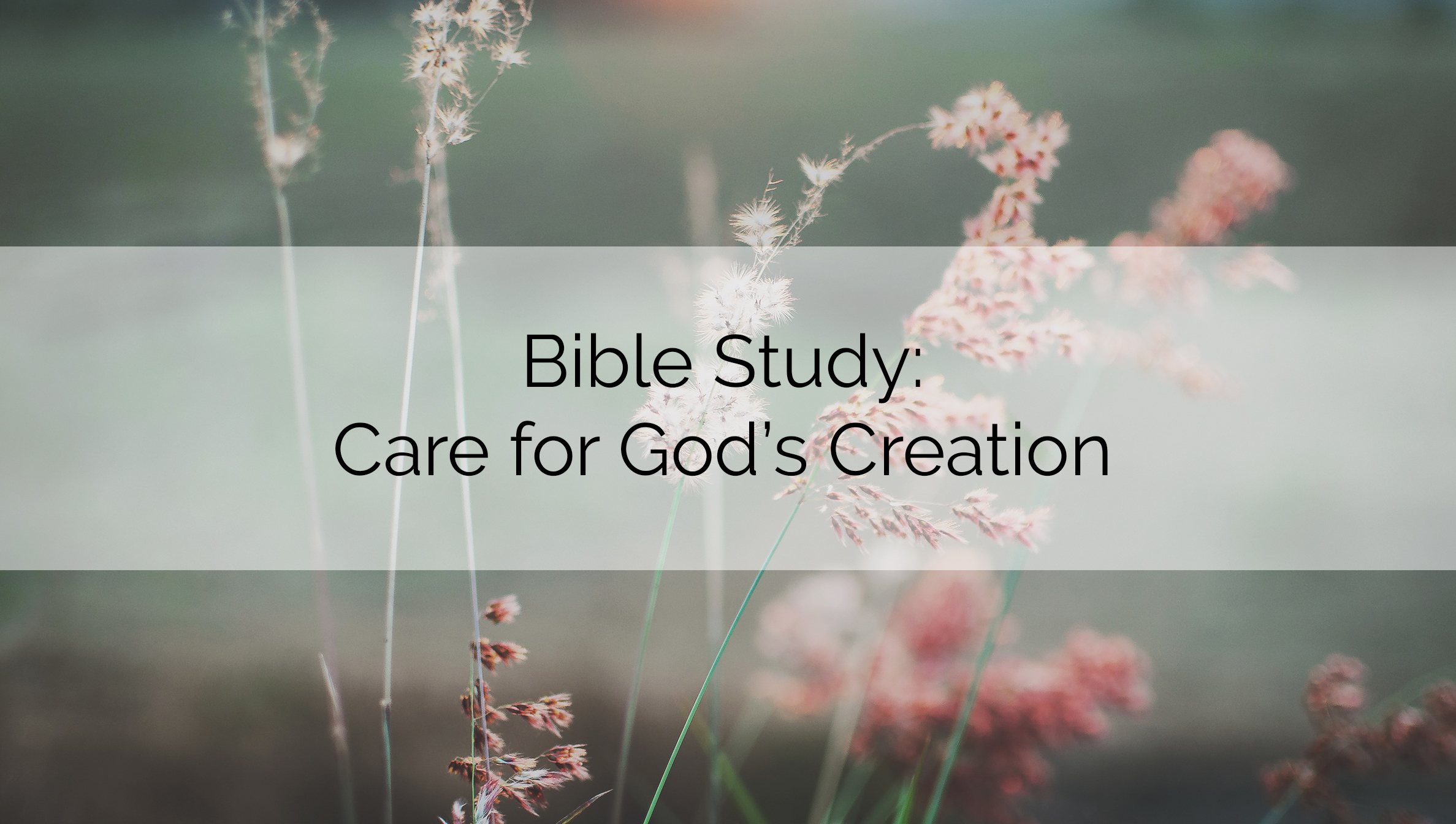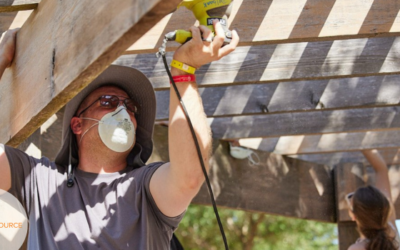By Dick Krenzke
Download a PDF of the Bible Study: Care for God’s Creation.
Objectives
That with the help of the Holy Spirit participants will
- understand that our environment is a gift from God; and
- develop a covenant to care for the earth beginning in our home, church, and community.
Introduction
Open with a prayer thanking God for the wonderful earth that He has given us, and asking for His help as we care for it.
Everyone knows there are environmental problems. Most are concerned. However, even concerned caregivers of the earth do not have the answers. Even those concerned for the earth’s care find it difficult to do something constructive without adding to the problem.
Creation Groans
Read Romans 8:16-23.
Point out that being redeemed by Christ restores our relationship not only with God and others but also with creation itself. Children of God through Baptism are heirs of God, coheirs with Christ. Everything belongs to Christ. By God’s grace we share in what is His. Yet the perfection of the Garden of Eden is no more. We eagerly wait for God’s glory at the end of time. Fascinating, isn’t it, that all the rest of creation also waits in eager expectation for the new heaven and earth.
Man sinned deliberately. It was involuntarily, not of her own choice, that nature was subjected to death and decay. Therefore, nature waits to be freed from the death and decay that man’s sin brought into the world.
“Cursed is the ground because of you” (Genesis 3:17). That’s the environmental impact of the fall. “The foundations of the earth…will all wear out like a garment” (Psalm 102:25-26), yet the earth is not destined for destruction. “Behold, I will create new heavens and a new earth” (Isaiah 65:17); ”We are looking forward to a new heaven and a new earth” (2 Peter 3:13); “Then I saw a new heaven and a new earth” (Revelation 21:1).
Romans 8:22 describes creation as a woman in labor waiting for the birth of her child. The entire creation, as it were, sounds like a grand symphony of sighs. As one looks ahead from creation, there is hope. The day of the Lord did come. Christ Jesus, long expected and longed for, did come as a newborn child. God will again keep His covenant promise! So the groaning of creation is not in vain. As there is anticipation of joy in the birth of a child, so the groaning amidst suffering in which we join creation is not in vain. We are assured that through faith we have the hope of a new heaven and a new earth.
Activities and Discussion
- Read the lesson and have participants reflect on creation’s groans. Draw up a list of what creation is groaning about.
- Through the baptismal covenant we are children of God. The Spirit testifies to this special relationship.
- What does this relationship have to do with caring for the earth?
- Will our groaning for the hope of a new heaven and new earth quench our desire to be good stewards of the earth? Why or why not?
Earth Keepers
Read Genesis 1:26-31; 2:15.
God speaks as the creator-king. We were made in the image of God. Human beings were the crown of God’s creative act. Psalm 8:56 reminds us that God has crowned us with glory and honor and made us ruler over the rest of creation. True, humans are above nature.
Some have taken the words subdue and rule to claim that the Bible paves the way for exploitation and abuse of the earth’s resources. These words have never meant “waste, abuse, destroy, exploit.” Psalm 115:16 tells that God has given earth to us. Rulership is a gift. Yet the earth is not ours to do with as we please; rather, we are accountable as caretakers of it. We are to care for the whole creation, enabling each piece of creation to serve as fully as possible the purpose for which God made it.
Looking at all that He had made, God noted that it was good; no, not just good, but very good. As a point of fact, it was perfect. Everything had its function. The psalmist could proclaim, “How many are your works, O Lord! In wisdom you made them all; the earth is full of your creatures…may the Lord rejoice in His works!” (104:24, 31).
All about are signs of the fall into sin. These signs show up in our actions, not only toward one another but also toward God’s creation. Abuse of the earth is truly part of the sin problem. Redeemed in Christ Jesus, we are responsible to develop and maintain God’s creation, not to destroy it.
Genesis 2:15 is a key passage, especially if there is any misunderstanding that might have grown out of the word rule in Genesis 1. Here we clearly see the kind of rule we are to exercise over the creation. “God took the man and put him in the Garden of Eden to work it and take care of it.” He was to watch over it, guard and protect it, thereby governing the earth responsibly on God’s behalf. He was to keep it up, service it, look after it. That is a call to action, a challenge to take seriously our covenant with God to care for the earth.
Activities and Discussion
- Why did God give us the earth?
- How does keeping the earth serve a spiritual purpose?
- Genesis 2:15 implies protecting the earth for the long-range future. Earth keeping means avoiding behavior that undermines the capacity of the earth to keep on thriving. What such personal behavior might be included? What does this mean as far as lifestyle is concerned?
God’s Covenant Relationship with Us
God established His covenant with us through Holy Baptism. Thus, empowered by the Holy Spirit, we are unique, responsible, influential, and can make a difference. The following discussion guide can be helpful in establishing covenant actions that result in loving care for God’s earth. Have the group talk about it. List those actions that seem appropriate to the covenant relationship. Be alert to any activities that might need follow-up, such as a youth group recycling program.
Discussion Guide: My Covenant with God as Keeper of His Earth
How can I make a difference…
- At home?
- At church?
- At youth group?
- In the community?
- Nationally/globally?
Close with prayer.
Originally published in Youth Ministry Quarterly 91.1.
Reprinted and updated for youthESource in February 2017






0 Comments